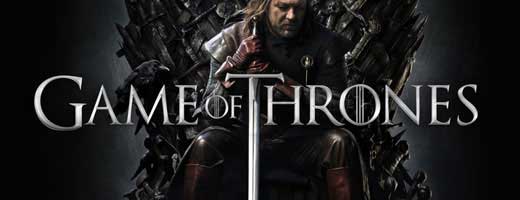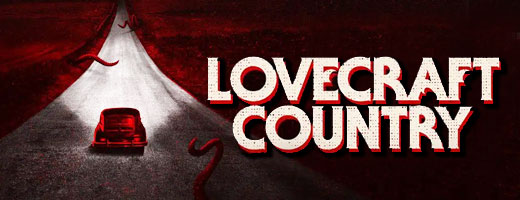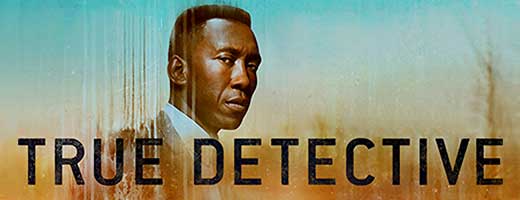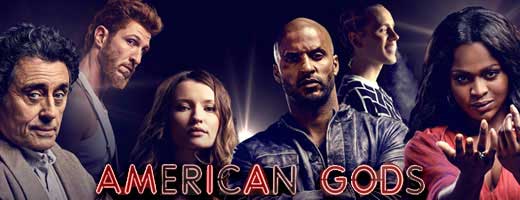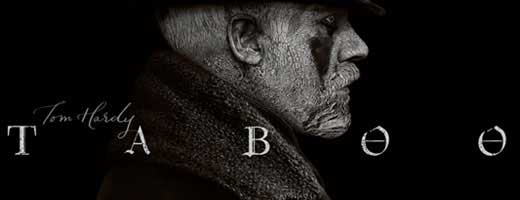What American Gods Actually Are

Have a Theory? Share It Now!
This is the first time which I write to your podcast after taking the journey with you through both Westworld and Taboo. I for one have enjoyed your discussions of the material and would look forward to more from you in the future.
On to my thoughts of the current series in which we are observing.
From what could be taking from the first two episodes; the depiction of what ‘gods’ actually are is ‘for what one worships’ or what translates into worship… one’s time and thoughts and reverence. It takes many forms here, from actual beings considered gods, to humans which are regarded as living embodiment of gods, to beings regarded in your youth from oral history to relay the morals and messages which one ingests.
All are meat for the creation of the pantheon which lies before us. Once the person reaches the land, profess their ‘god’, or make tribute to them, they are now apart of the American catalog. Once their artifacts stolen from their mainland reaches our shores for the inspection of the masses by display in our vaults of stolen culture called museums, they are brought to America.
And they are starved.
It’s like the saying; ‘Parents are gods in the eyes of their children’. As a child, these beings which gave you life, reared you, nurtured you, are indeed gods, and you love them as such. But as you get older, reach the years of rebellion and individuality, you see them in a different light, they are now humanized, and as such, flawed. They are no longer the repository of all knowledge, the strongest. They are now simply human adults, your parents. It is not that they are less loved, they are simply, not gods anymore.
For what we seen, the gods are brought to America, and over the years they are put aside for other gods, never to be as strong as they once were in their heyday. Their stories are kept alive as meat for our stories, but not revered or even thought upon by most. Its why they are soiled, destitute, hungry, and made to search for sustenance in this land, such as other immigrants.
For the scene of Anansi, I actually loved that scene. Being a being which is the spirit of knowledge through stories, there is no frame of reference for it. It is simply told directly within the minds of the worshiper, allowing its meaning to frame within and gain the wisdom of his words. A trickster, like other trickster mythological creatures, appear to you either meek or that of exaggerated confidence, but always with a message which cuts through you to the core.. And Anansi gave them such a message. Would it have been simpler to freed the slaves [in a rather clean and less crowded slave ship] and shown them the way back home? Yeah… but that is not the moral of the story which he told. He gave them a glimpse in the futility of their prayers, of wanting to be delivered from freedom. They are currently in the era of slavery, in which if it wasn’t them to be taken for slavery, it would be one of countless millions [since many met their demise at the bottom of the sea from the passage] which became slaves and the meat of the machine which ground them into the people which you seen today, and even then… still in the process of battling stereotypes… that scene resonated with me… fully understand it… fully entranced by the actions which his word incites… as James Baldwin states… The fire next time.
I also enjoyed, through the idea of worship, the scene for he television god. It makes sense and plays out, although heavily revised, from the source material. Another creation based of the worship of humans to its altar, and a rather strong one since technically, we are still in worship of it. The more which we worship, the stronger, richer, affluent it becomes, as compared to Czernoborg with the sisters of morning, evening, and night. They journeyed from New York which most of their worshipers came, and by the time that they came to Chicago, most of their followers are no more, and now they have no more ‘currency’ or ‘tribute’.
The same for Bilquis, a being of veneration within her time, where supplicants were brought to her altar for her to feed, now reduced to luring them to her. Like the water carried from a stream, to the water drops from a spent canteen. She visits her statue in the place of stolen culture, in sorrow for what she currently is reduced to, remembering for former self in her regalia… its what a former Football player would feel after visiting the shrine to their triumphs on the field at the altar in Canton, Ohio, as a broken man on crutches and rolled out by the NFL gods as a set piece.
And as for Shadow… he is simply the current state of man. unbelieving in the stories of gods, confused as to what he sees in front of him but unable to deny it because now… he sees it. It is a slow process from his mind being jailed to being free to accept such concepts. You start with cynicism and end with understanding and acceptance… but as the story unfolds, where do you go from there?
Thanks again for your time.
Mark D.
Subscribe Now
- Android: https://shatontv.com/american-gods-android
- Apple/iTunes: https://shatontv.com/american-gods-itunes
Help Support the Podcast
- Support with Paypal – https://shatontv.com/paypal
- Support With Venmo – https://venmo.com/ShatPodcasts
- Shop / Merchandise: https://shatontv.com/shop
- Shop Amazon With Our Affiliate Link – https://www.amazon.com/?tag=shatmovies-20
- Sponsor’s Listener Survey – https://shatontv.com/survey
- Leave an iTunes Review – https://shatontv.com/american-gods-review
- Leave a Voicemail – (914) 719-SHAT – (914) 719-7428
- Feeds & Social Media – https://shatontv.com/subscribe-and-follow/
- Checkout our Movie Podcast – http://shatthemovies.com

